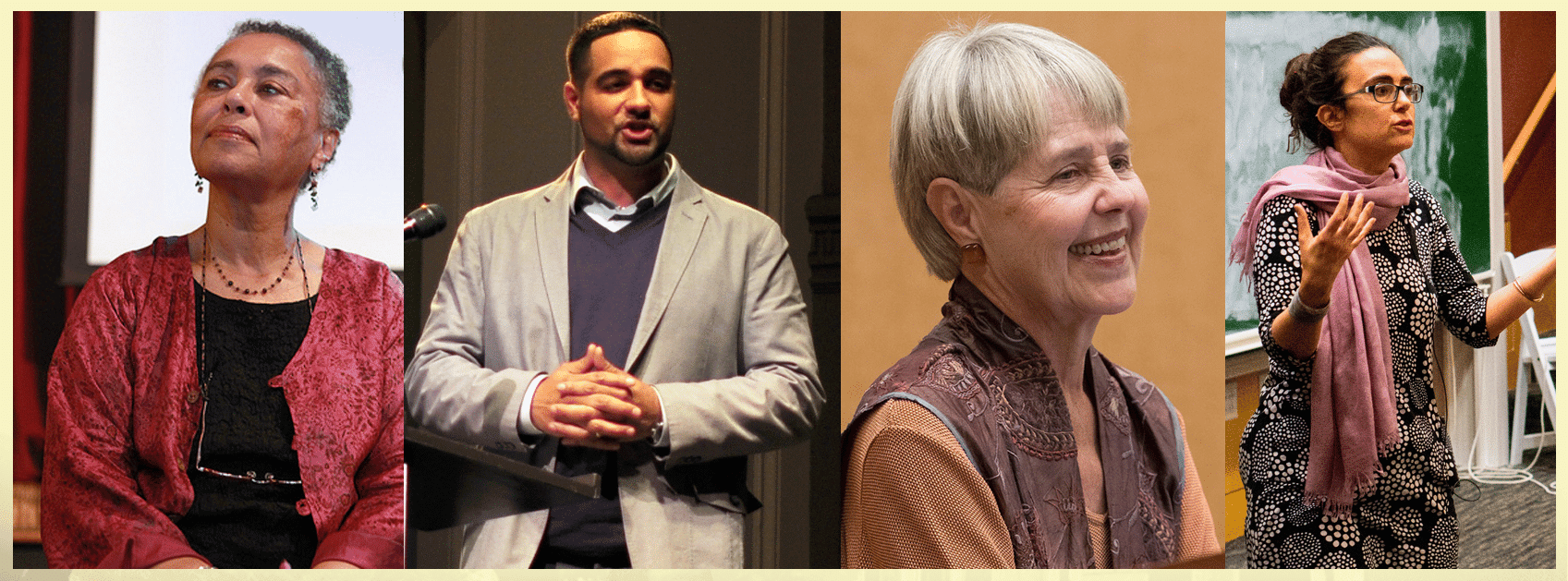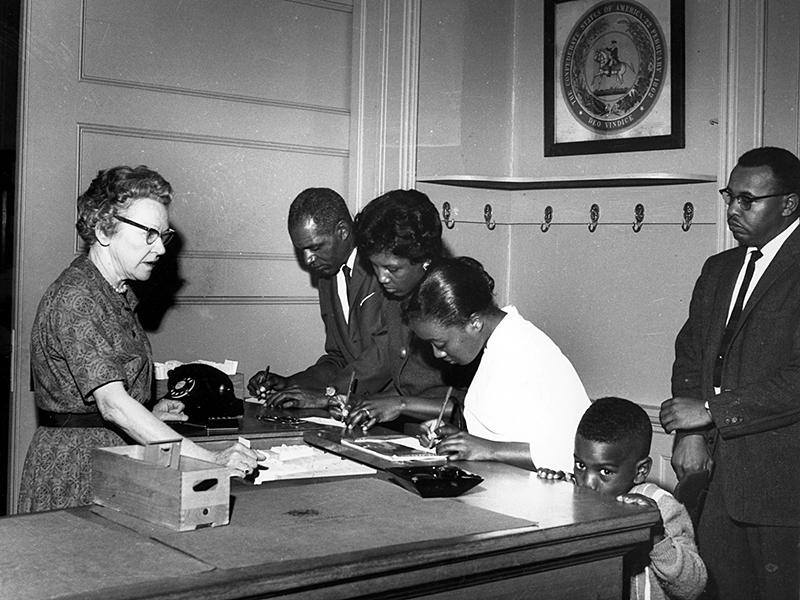Dr. Bernice Johnson Reagon (October 4, 1942 – July 16, 2024) was an influential song talker, composer, scholar, and activist. The SNCC Digital Gateway offers a short student-friendly profile of her life with interviews and primary documents.
As an example of the power of Reagon’s ideas and experiences, we share a clip from an interview conducted by Blackside, Inc. for Eyes on the Prize about the Albany Movement.
Transcript
Growing up in Albany, I learned that if you bring Black people together, you bring them together with a song. To this day, I don’t understand how people think they can bring anybody together without a song. However, I do know that people try to do that, poorly, I think.
Now the, the singing tradition in Albany was congregational. There were not, really, soloists. There were song leaders and a song leader gives out a song. So like if, if Slater came and said, Bernice, sing a song, or, we want somebody to give us a song. Now you’re not asking for a solo, you’re asking somebody — the other one is, we want somebody to raise a song. You’re asking somebody to plant a seed. The minute you start the song then the song is created by everybody there. Nobody else will say, come on and sing. There is really almost like a musical explosion that takes place.
Now that song, all of my life, but the singing in the movement was different from the singing in church. And all of this is relative, because the singing in church, most people have never heard that we — the way we sing in church all the time. The singing is the kind of singing where you disappear. When I work with singers, I say, would you get off the stage and let the song be there. You go away; you turn yourself totally over to the song. And it’s almost like there is this song in this room now if I can get up to it. Am I up to it?
Most of the time, in Albany, Georgia, in the Albany Movement, we were up to it. But the song singing I heard in Albany I’d never heard before in my life in, in spite of the fact that I was from that congregational singing culture. And the only difference was that in Albany, Georgia Black people were sort of doing some stuff around being Black people. And I know a lot of people talk about it being a movement and when they do a movement they’re talking about buses and jobs and all of the list: Black policemen and they’re talking about the ICC ruling and the Trailway bus station and those things were just incidents that gave us an excuse to be something of ourselves. It’s almost like where we had been working before we had a chance to do that stuff was in a certain kind of space. And when we did those marches and went to jail, we expanded the space we could operate in and that was echoed in the singing. And it was a bigger, more powerful singing. The voice I have now, I got the first time I sang in a Movement meeting after I got out of jail. Now I’m describing to you, I’m past that first meeting in Union Baptist, I’ve done “Lift Every Voice and Sing.” I am a song leader, I lead every song in jail. And it’s not the voice I have.
I did not lead the songs in jail in the voice I have now. And the voice I have now I got that night and I’d never heard it before in my life and they did what they usually do, they said, Bernice, would you lead us in a song? And I did the same first song, “Over My Head I See Freedom in the Air,” but I’d never heard that voice before. I had never been that me before.
And once I became that me, I have never let that me go. And, I guess, what I like people to, to know when they deal with the Movement is that there are these specific things, but there is a transformation that took place inside of the people acting that need to also be quantified in the picture, because that’s the only thing I remember. And the singing is just the echo of that.
And if you have a people who are transformed and they create the sound that lets you know they are new people, then certainly, you’ve never heard it before. They have also never heard it before, because they’ve never been that before.
Our thanks to Professor Emilye Crosby for introducing us to this clip which was shared in the introduction to the SNCC Legacy Project roundtable conversation on Arts & Culture in the Movement. (Find more resources Crosby uses in classes on the Civil Rights Movement.)
More Interviews
Below are a few more of countless recordings that will allow generations to learn from Dr. Bernice Johnson Reagon. As she told her daughter Toshi Reagon: “I was here before I came and when I die, I am not leaving . . .”
In 2008, Dr. Bernice Johnson Reagon spoke about Odetta on Democracy Now!, including when she first heard heard Odetta perform. It was at Morehouse College in 1962. “And it was then I understood folk music to be a body of music that comes out of a cultural offering that is so close to you it names who you are. So, Odetta defined, in a usable way for me, what folk music was in a way that let me know I didn’t have to leave where I was to go learn some new songs to be a part of this movement.”
Dr. Bernice Johnson Reagon spoke at the dedication of the Howard Zinn Room at Busboys and Poets in 2011. Reagon first met Zinn when she was a student at Spelman while he was on the faculty. She was also active in SNCC while Zinn was an advisor (along with Ella Baker). He wrote about and supported the work of SNCC, including the Albany Movement.
Learn more at BerniceJohnsonReagon.com and from the related resources below.








Twitter
Google plus
LinkedIn